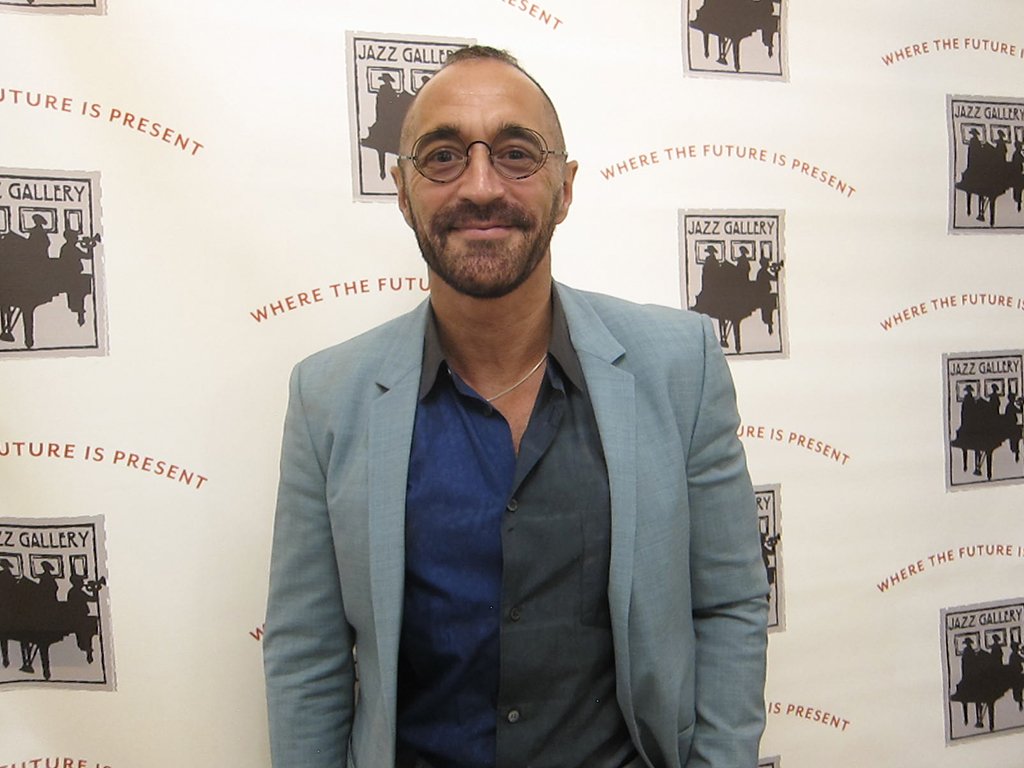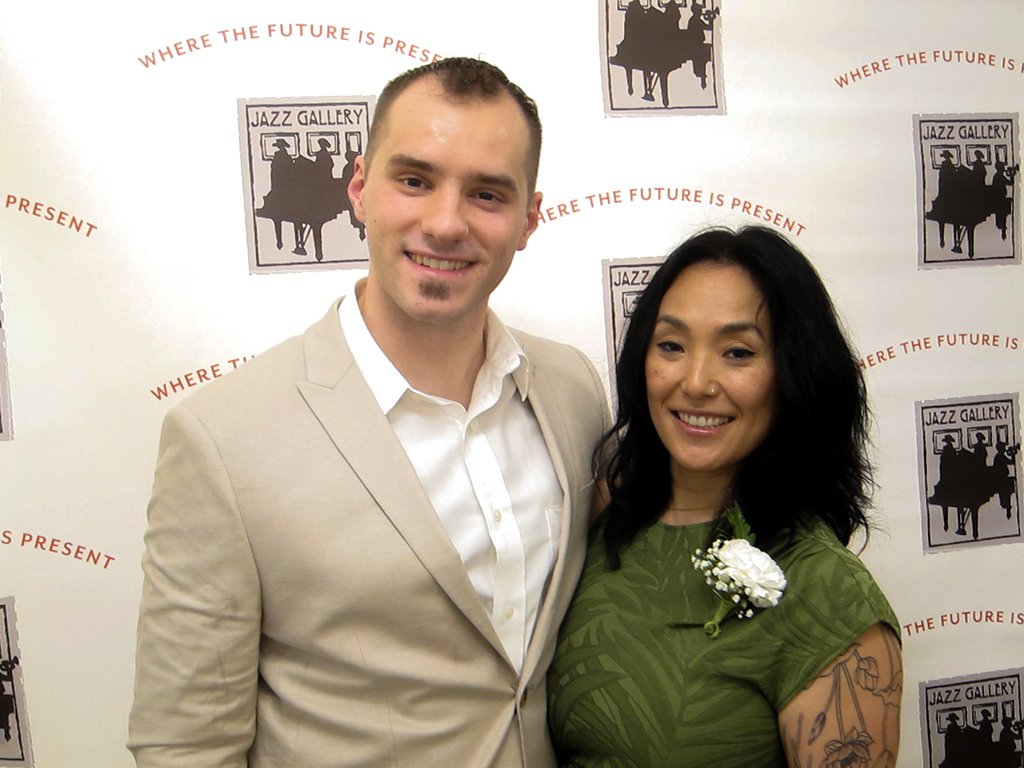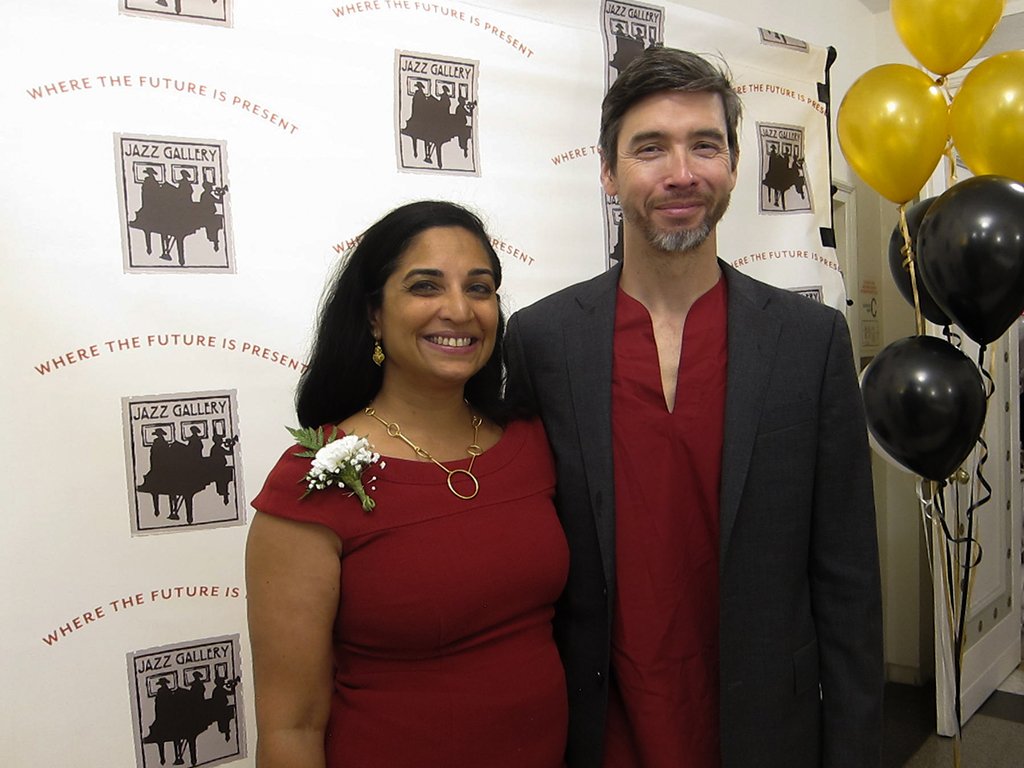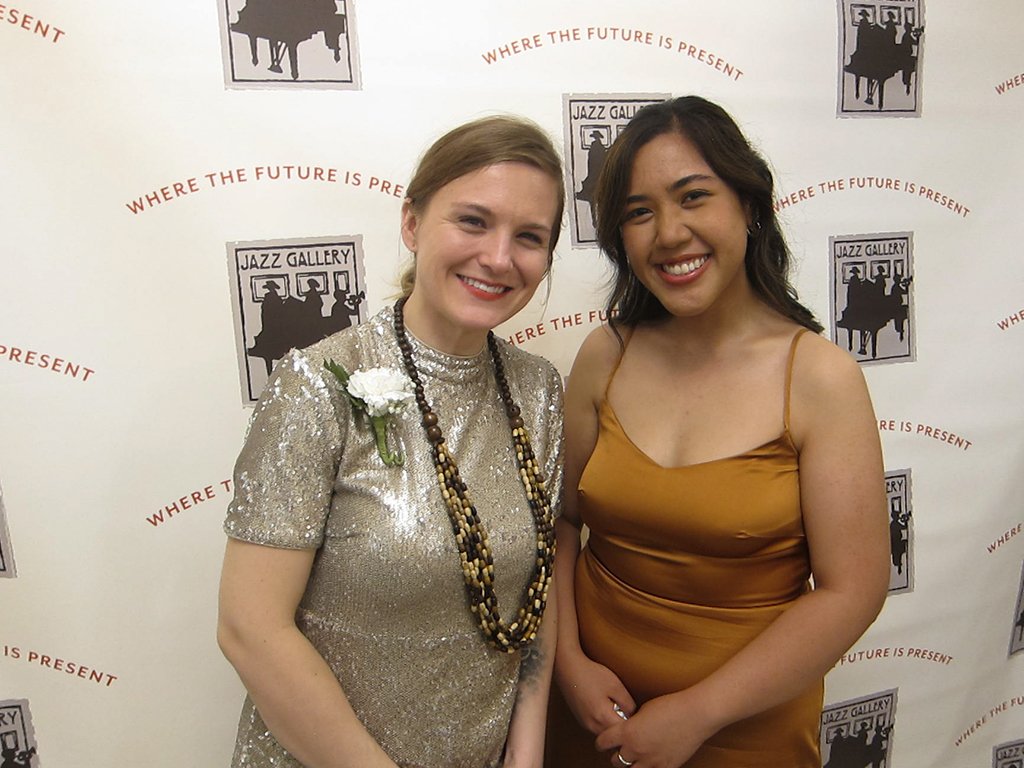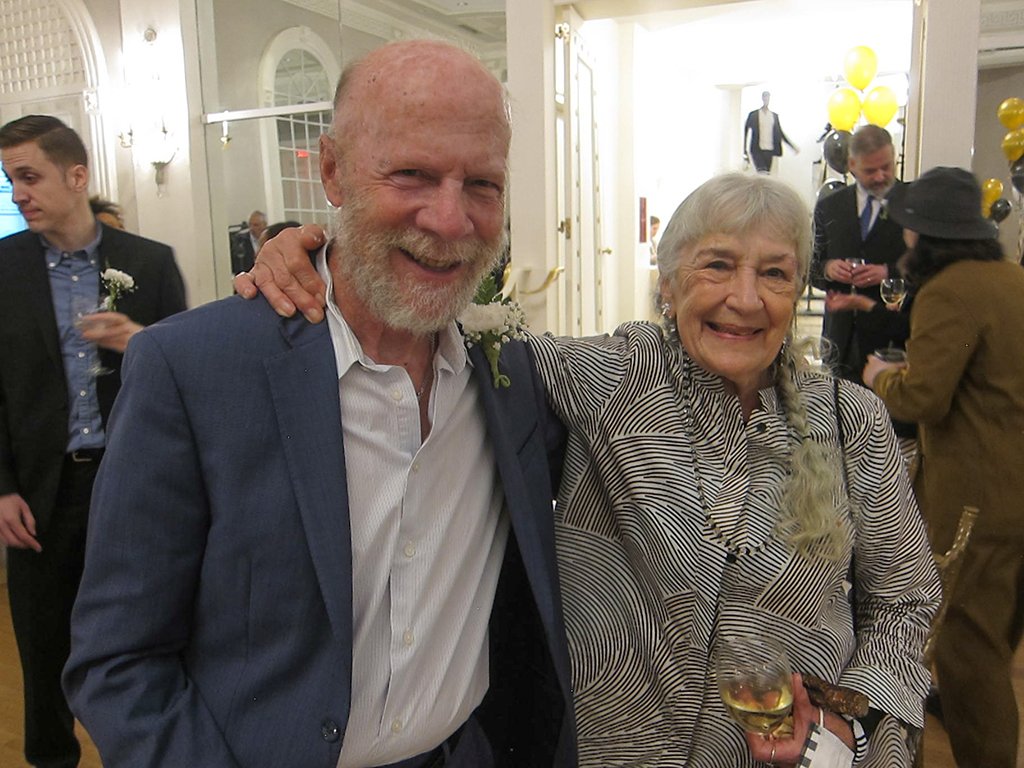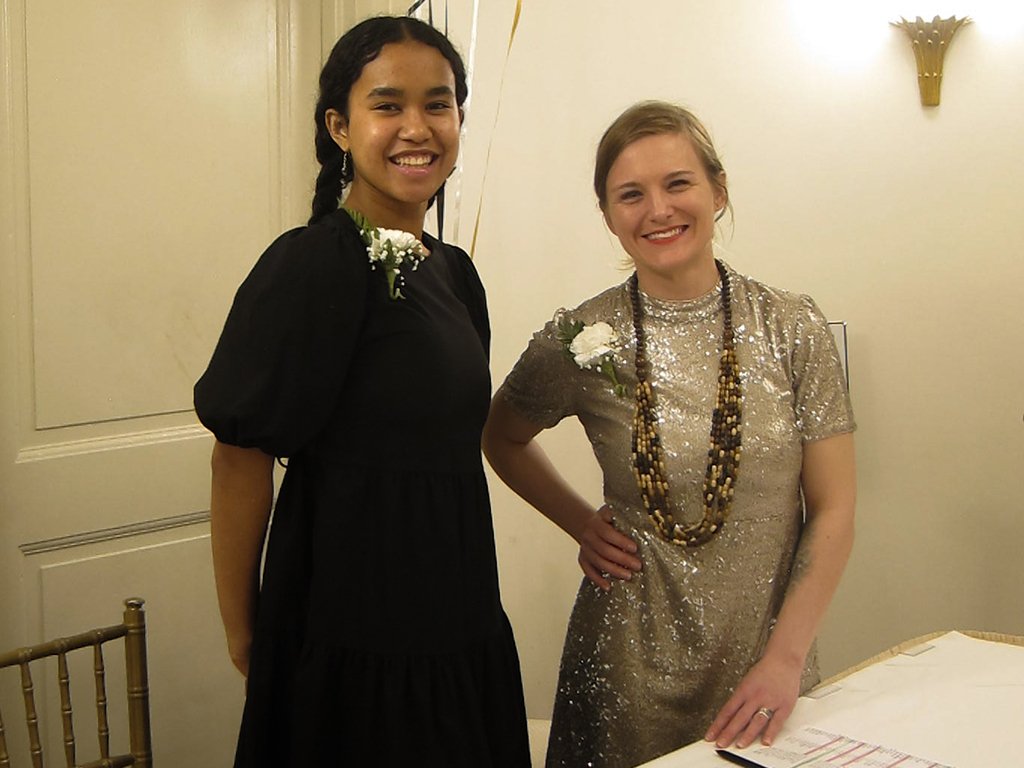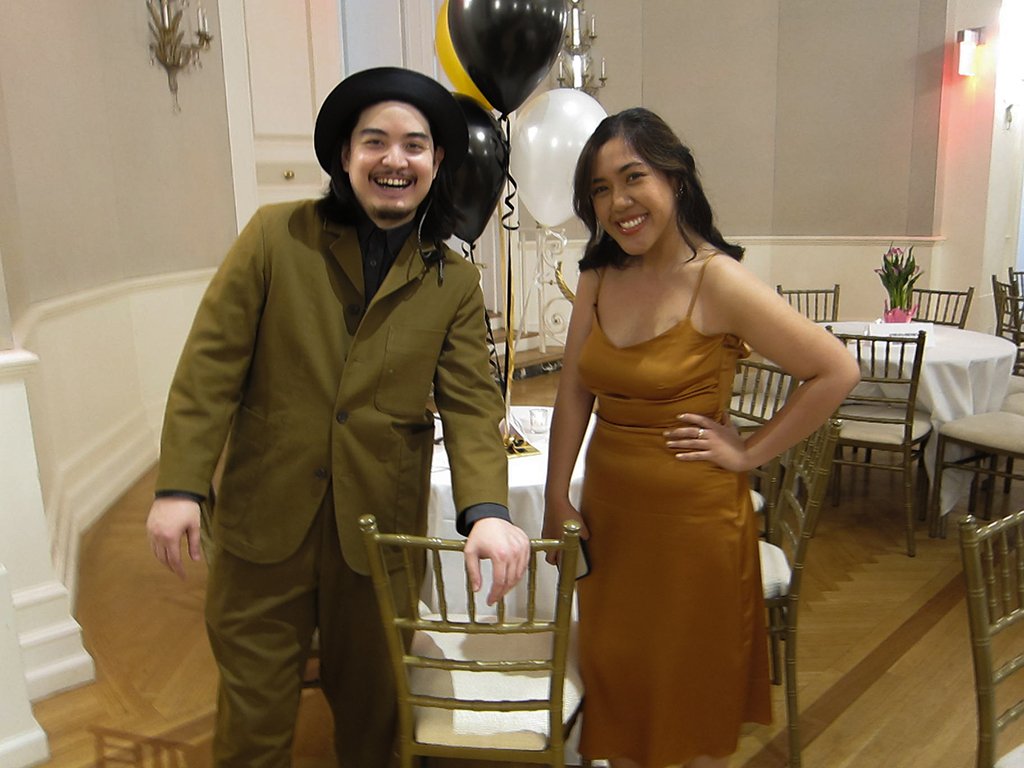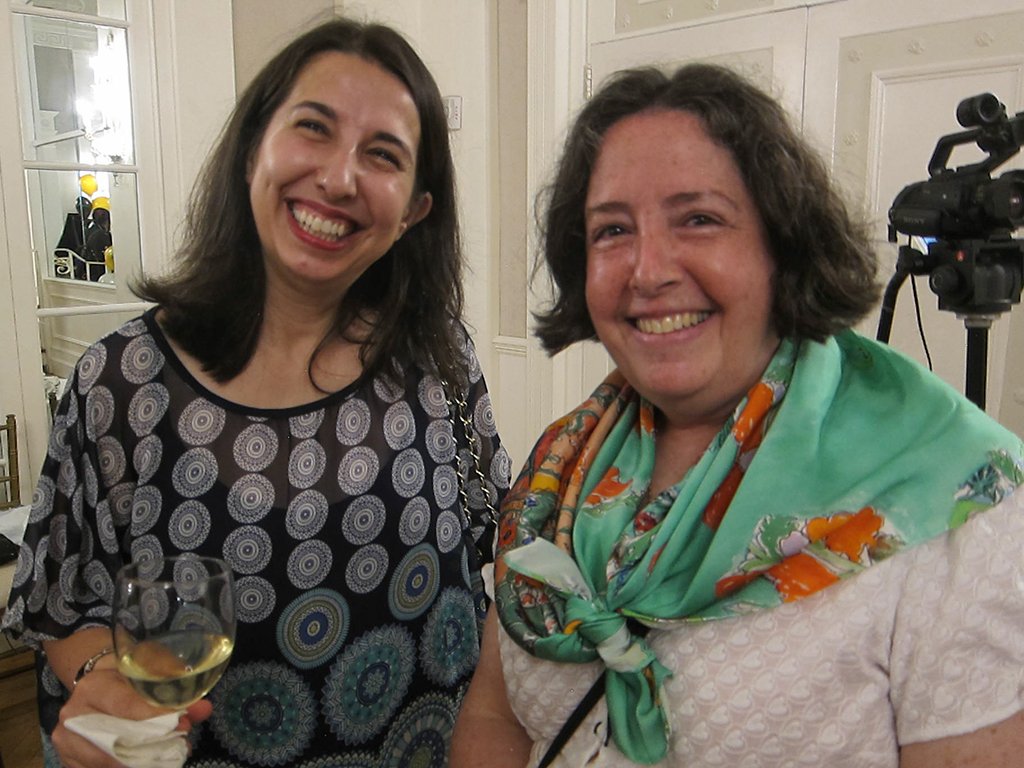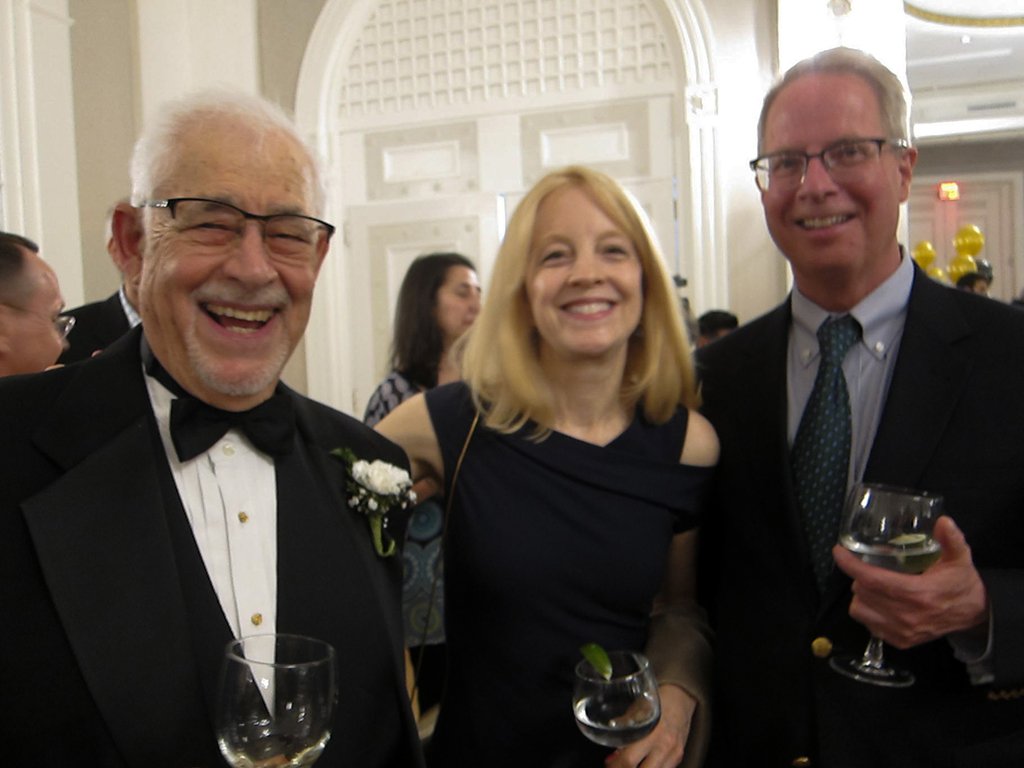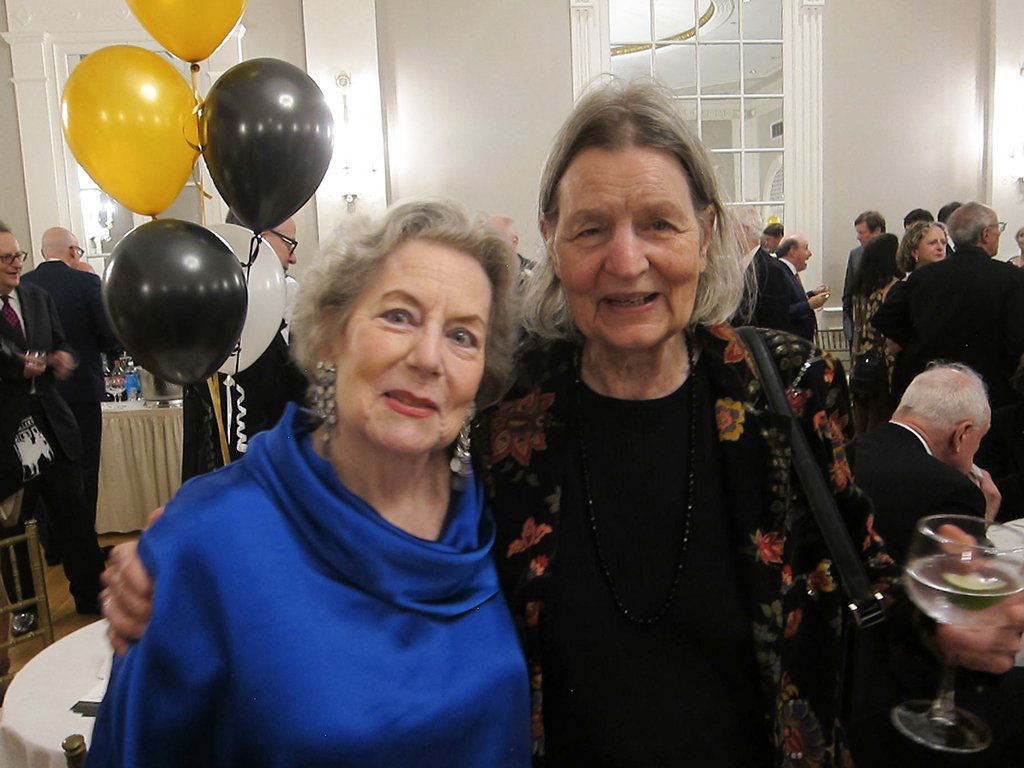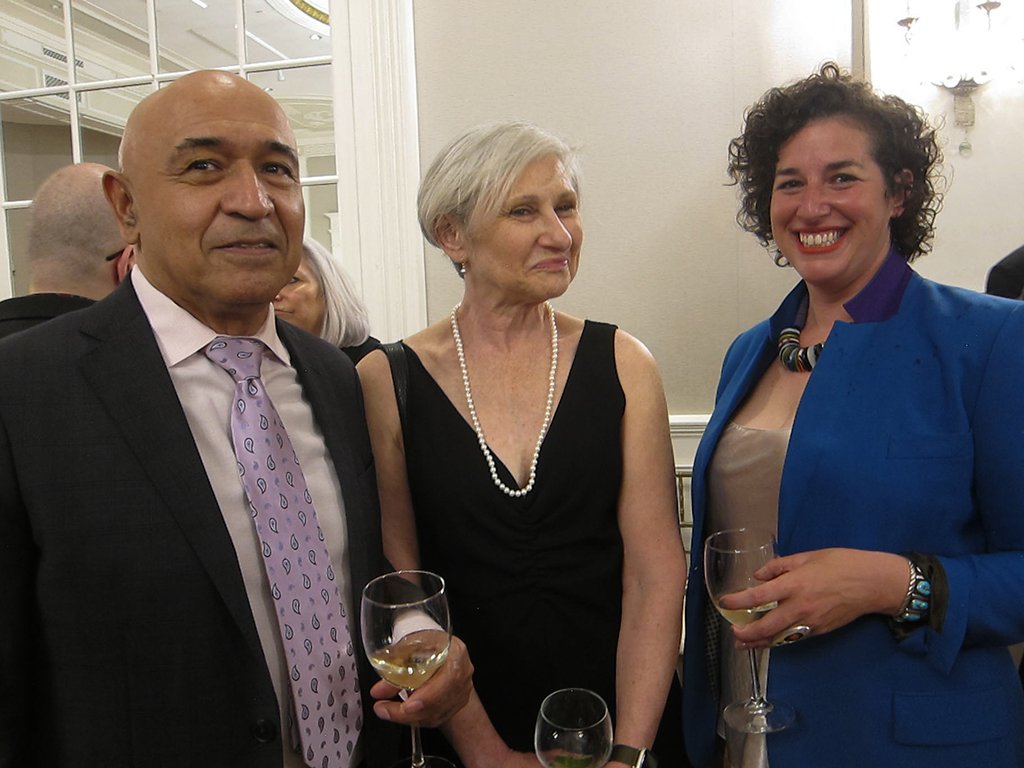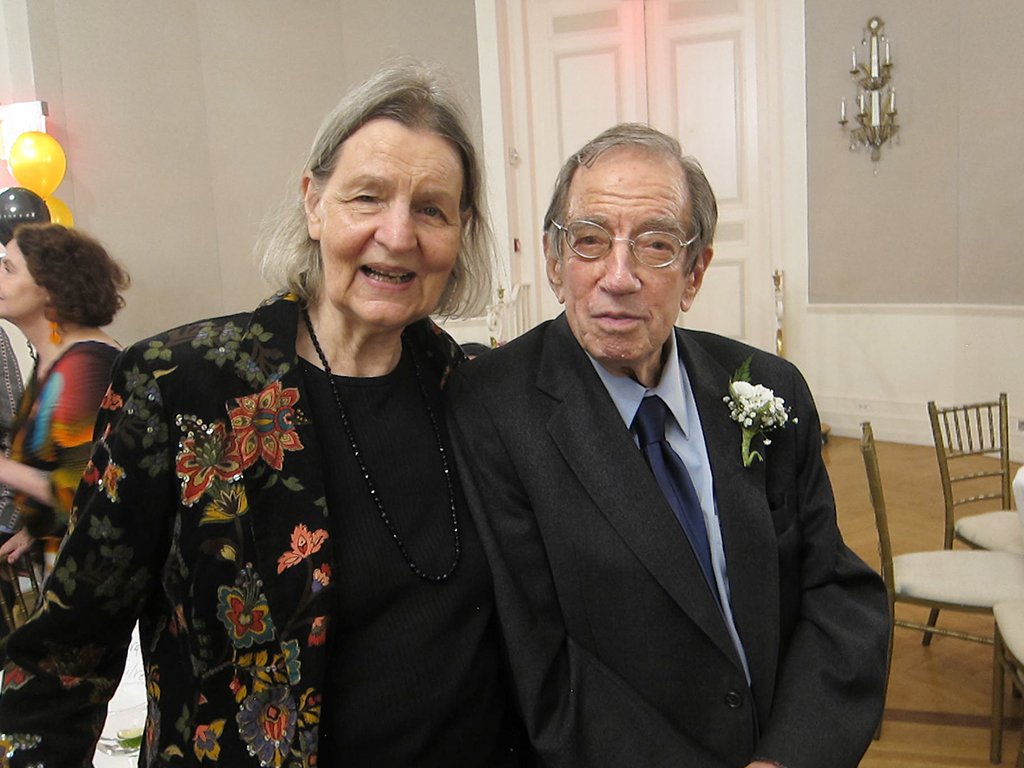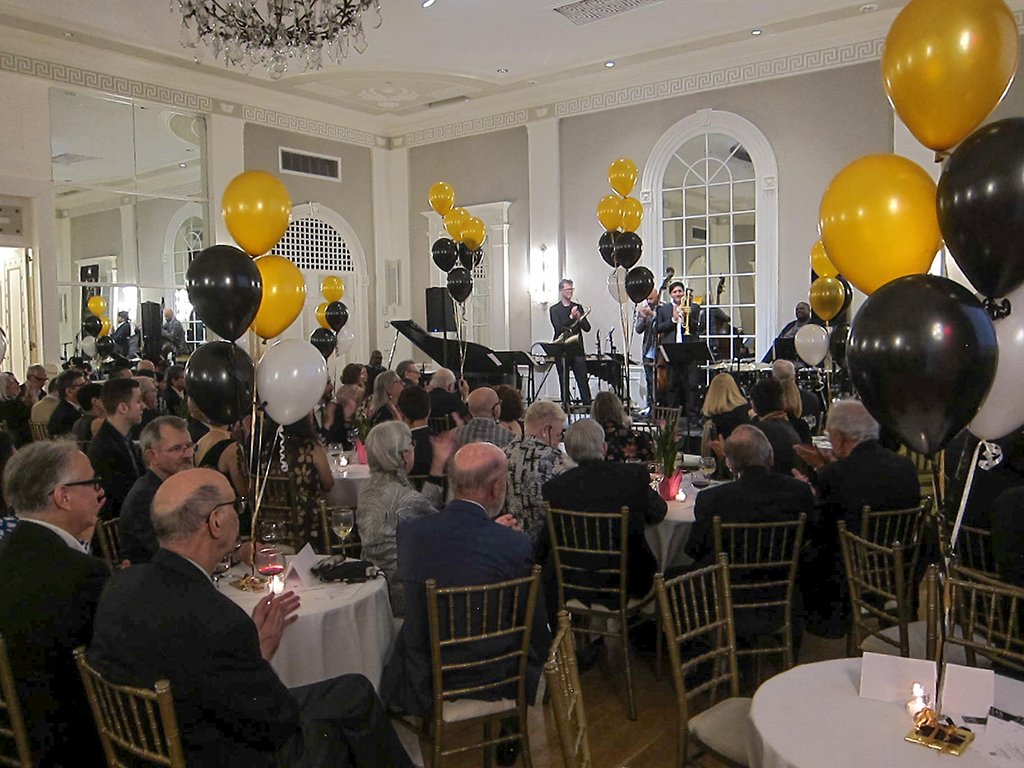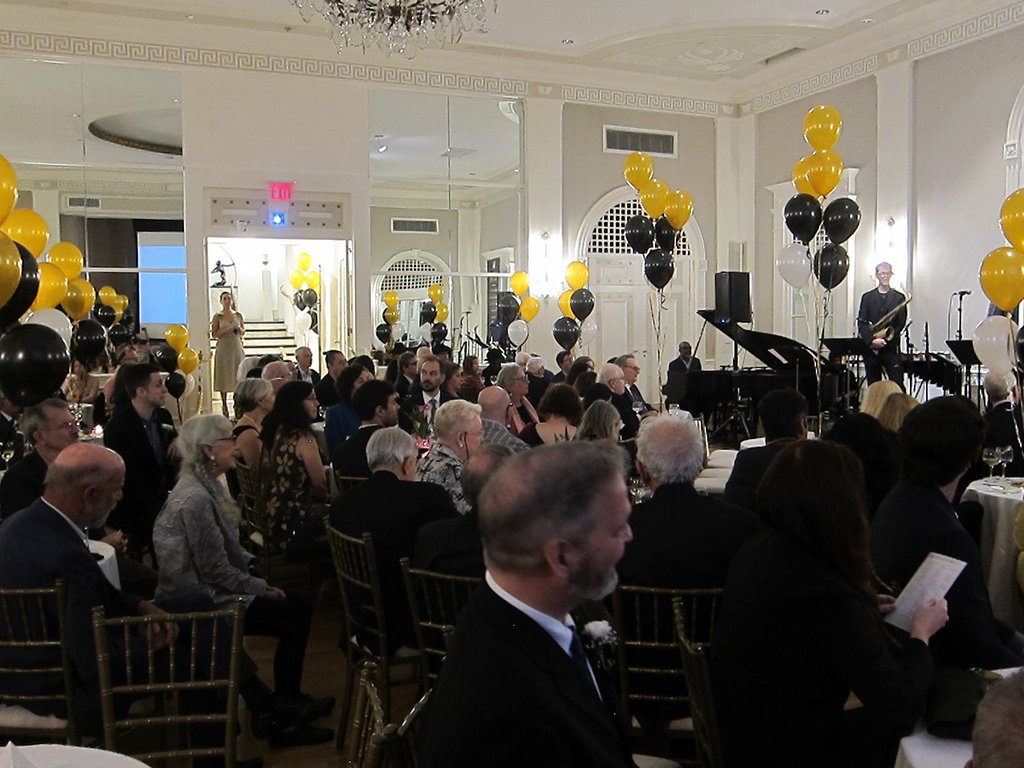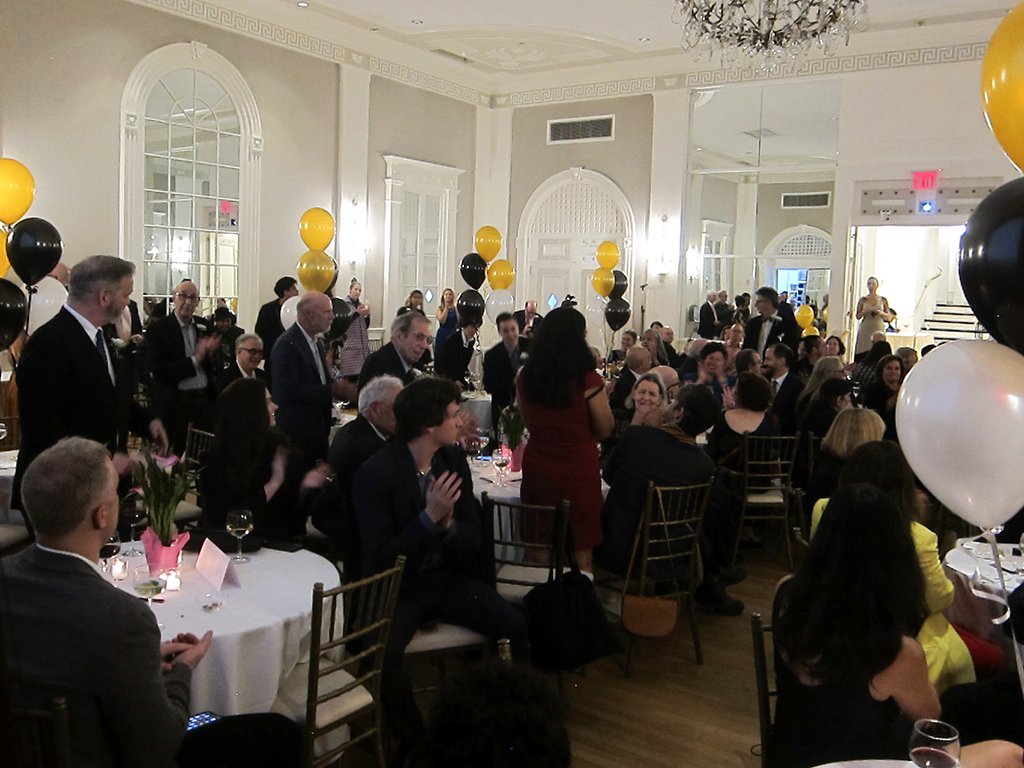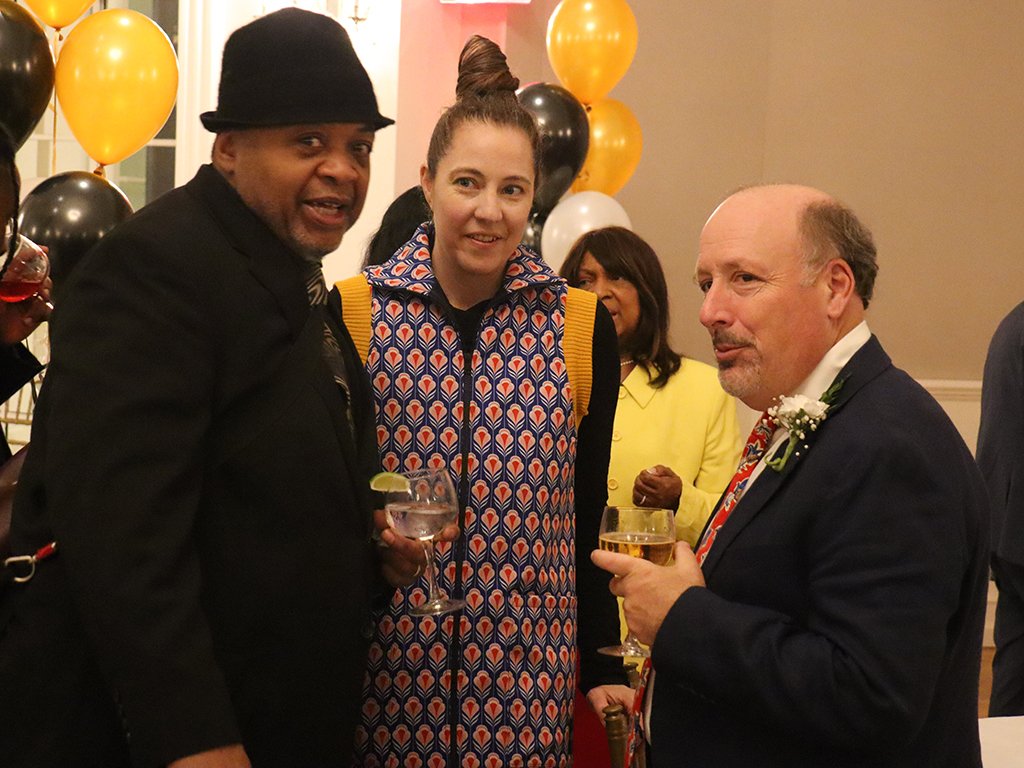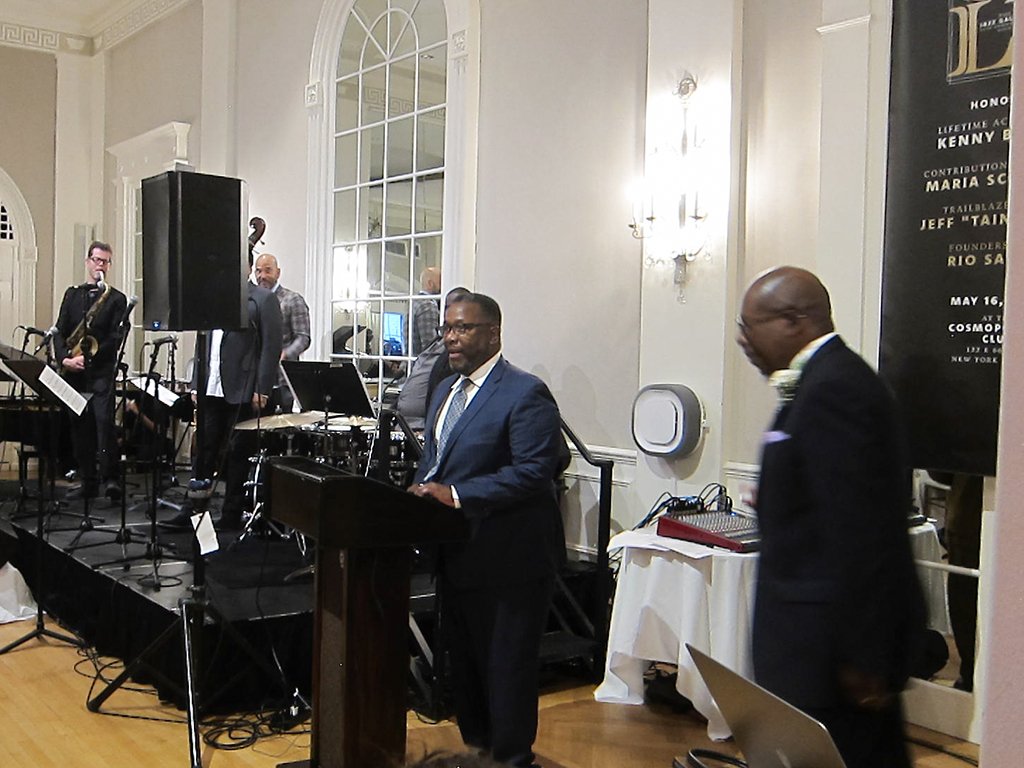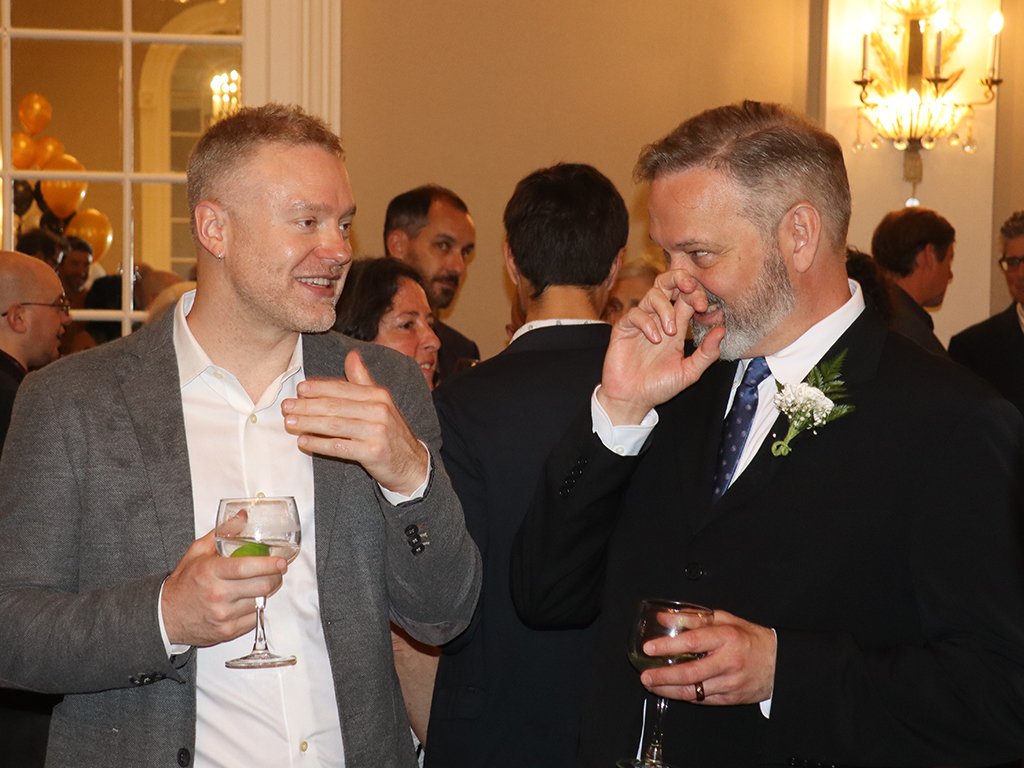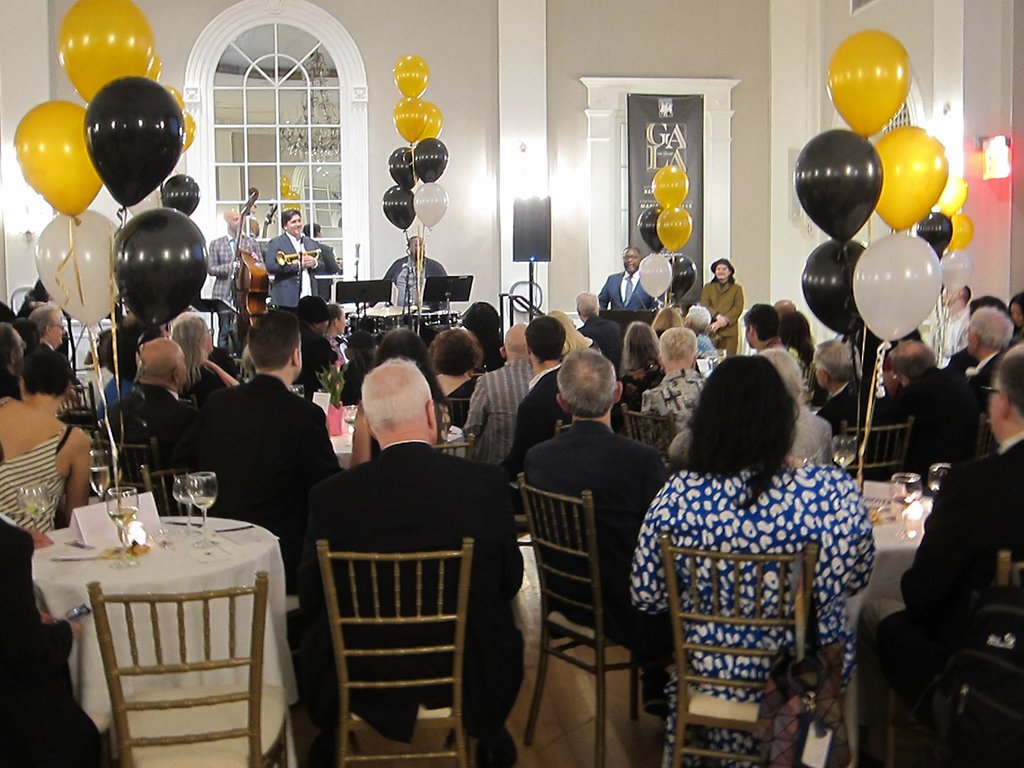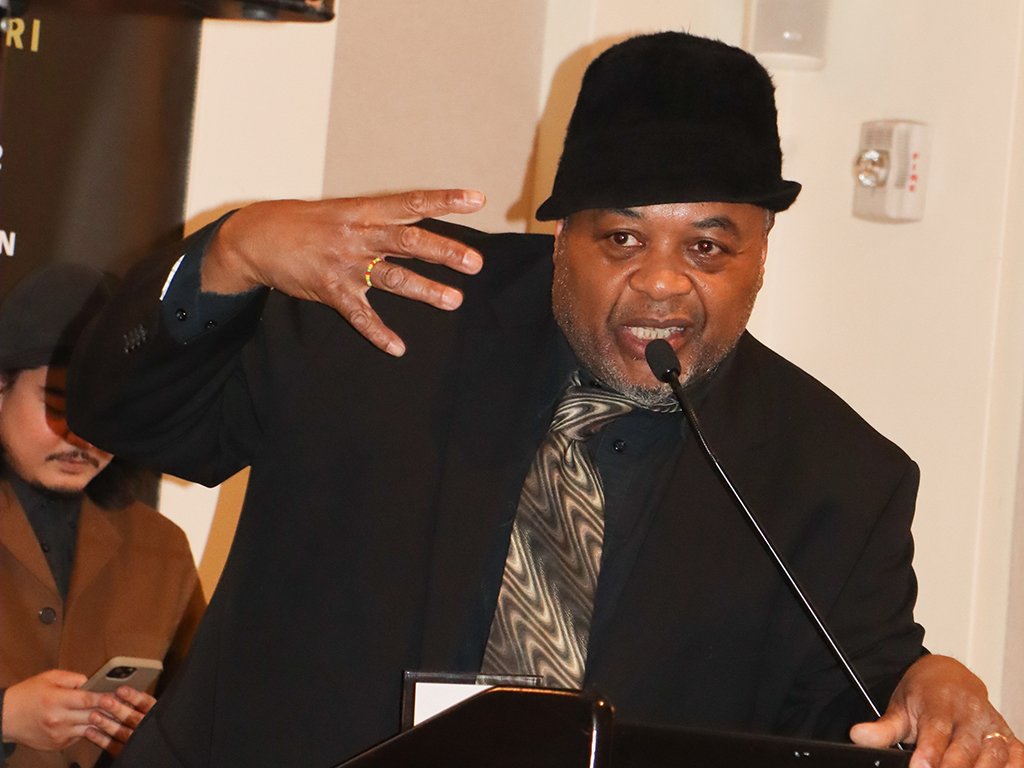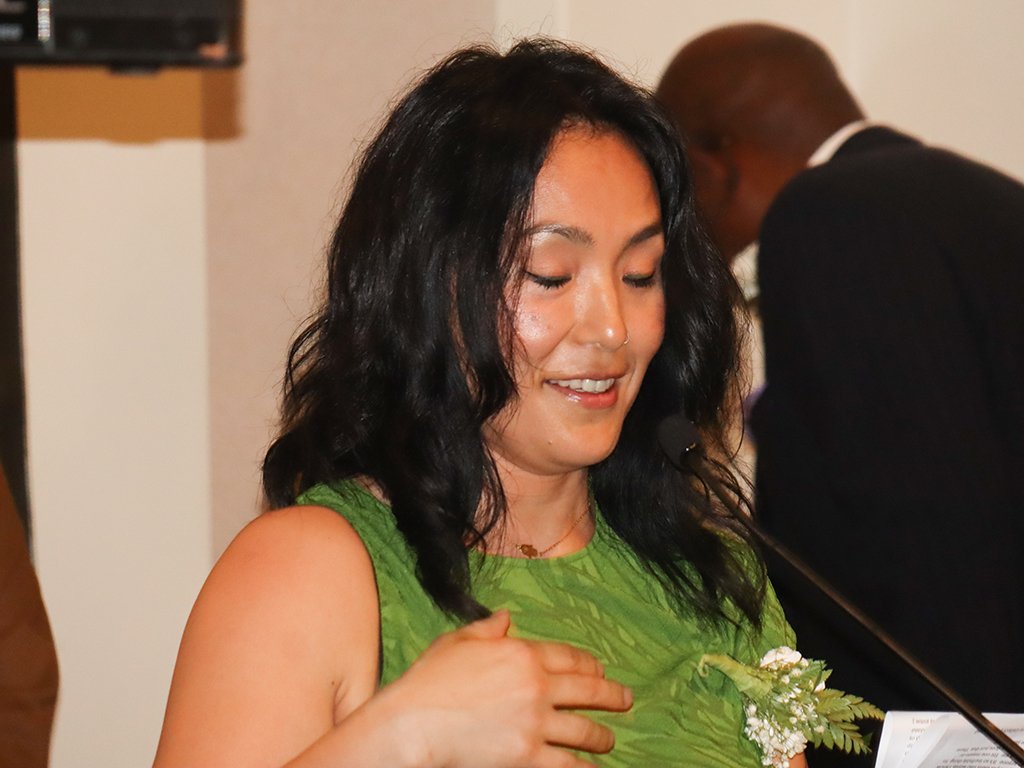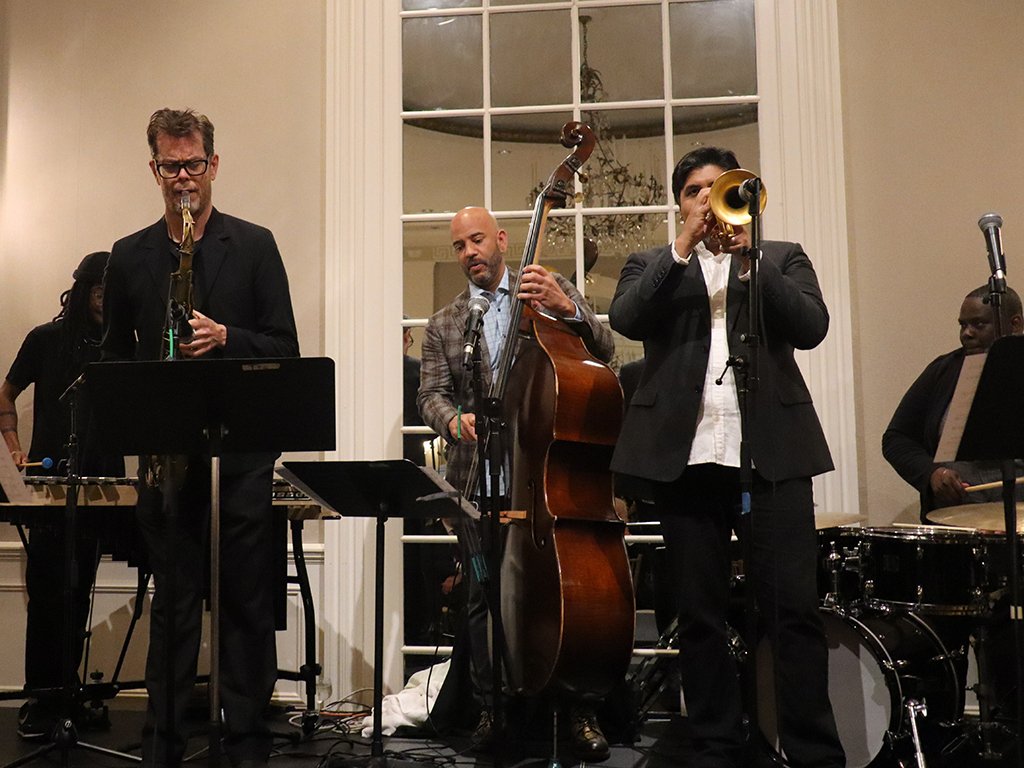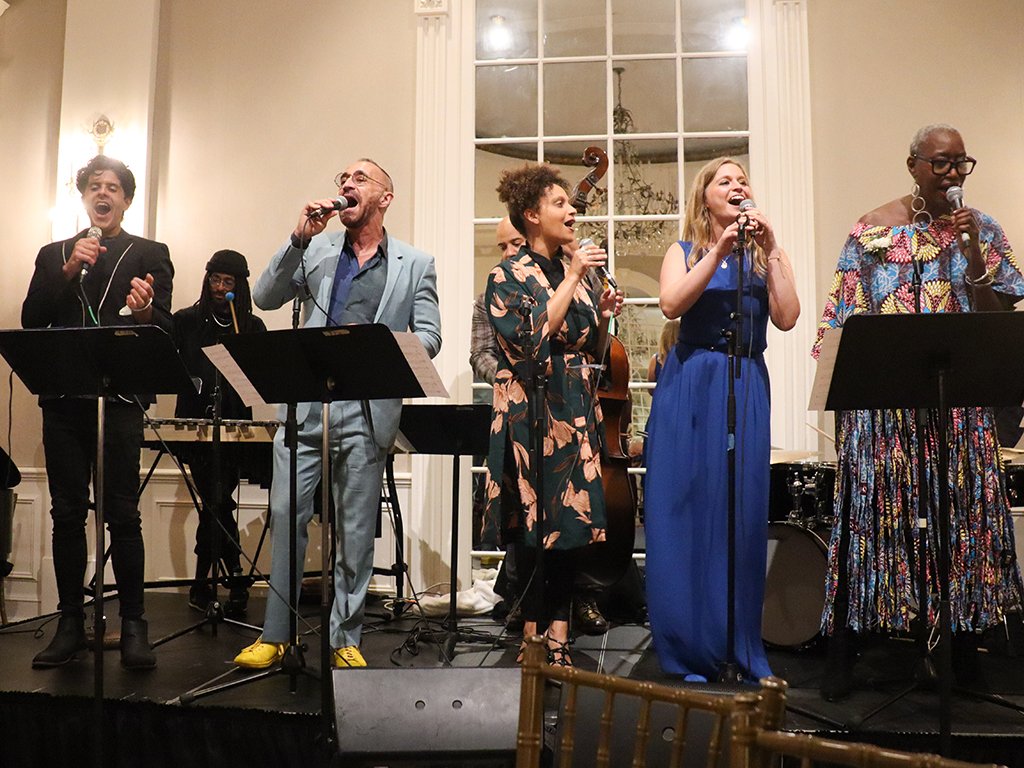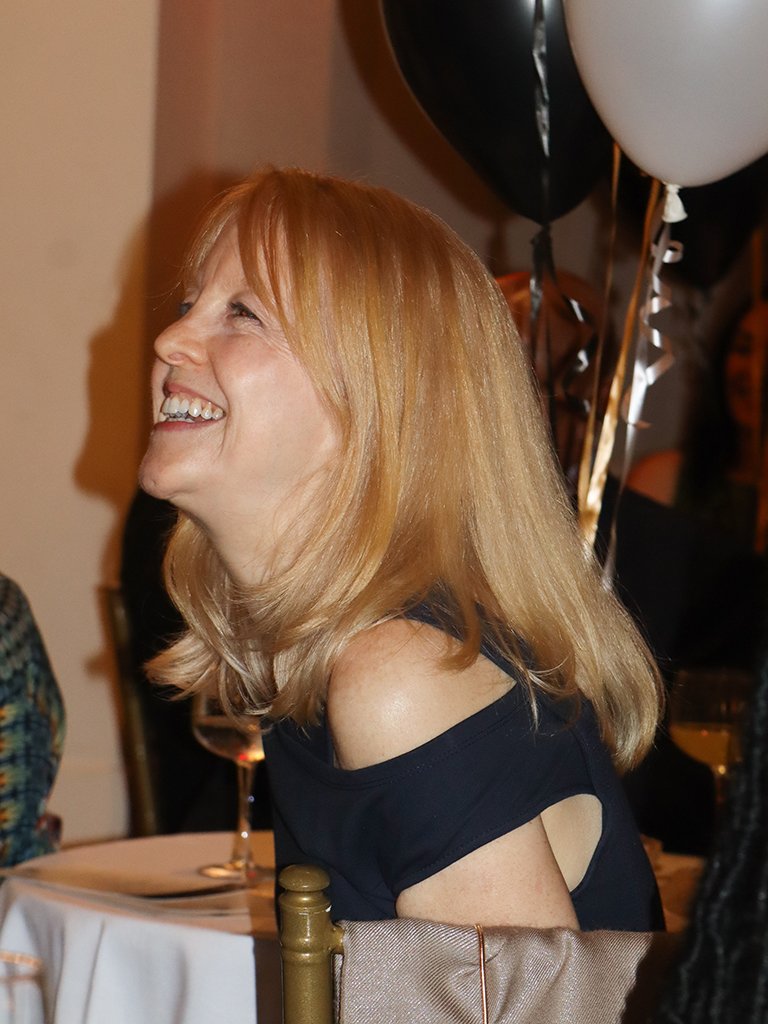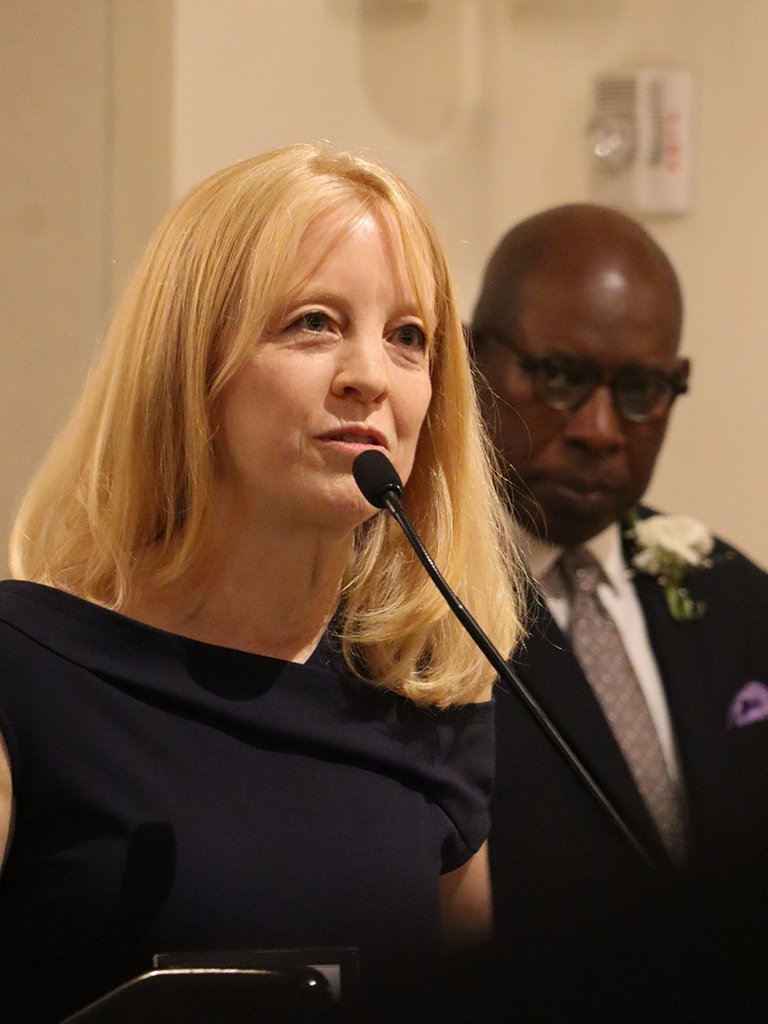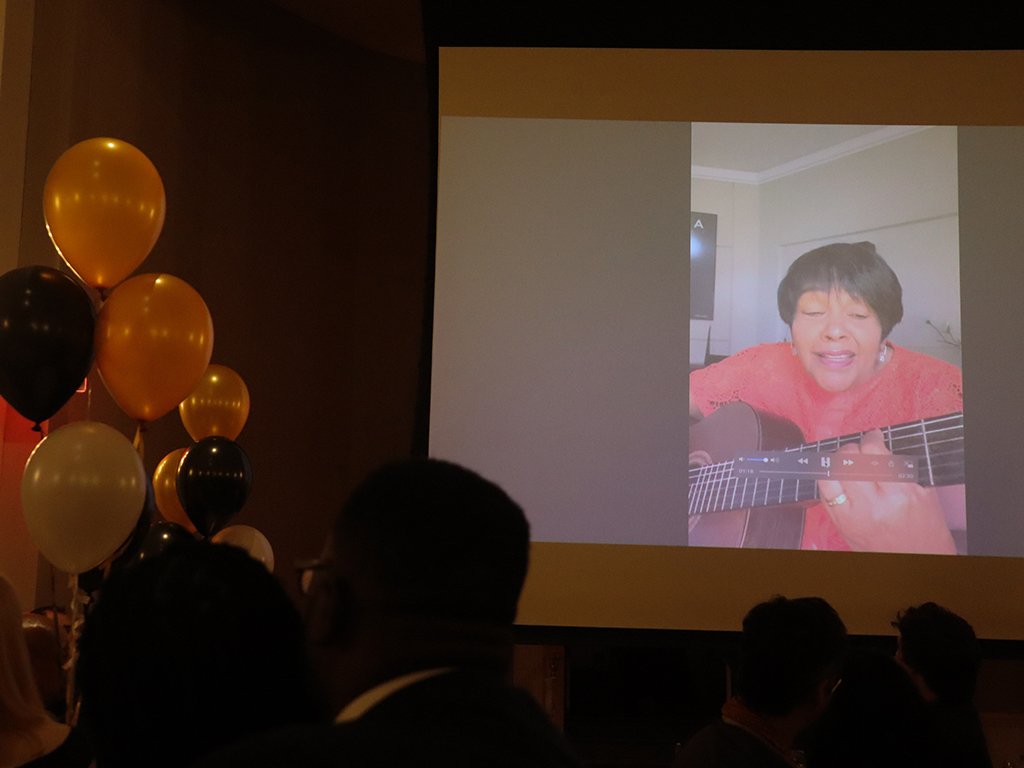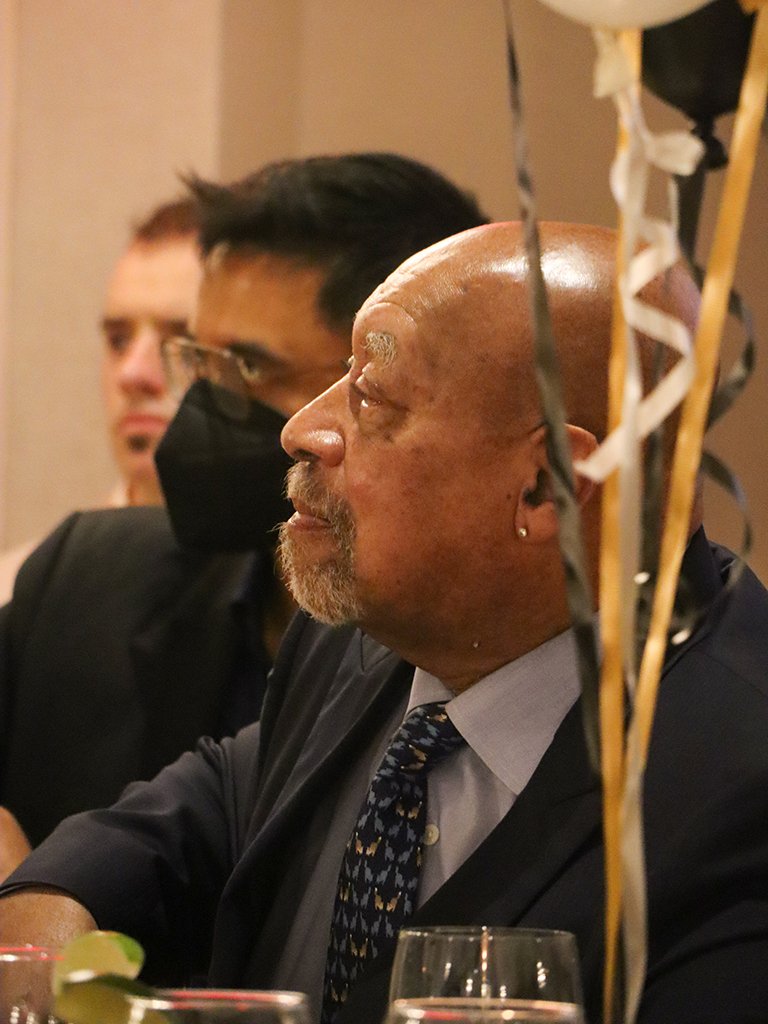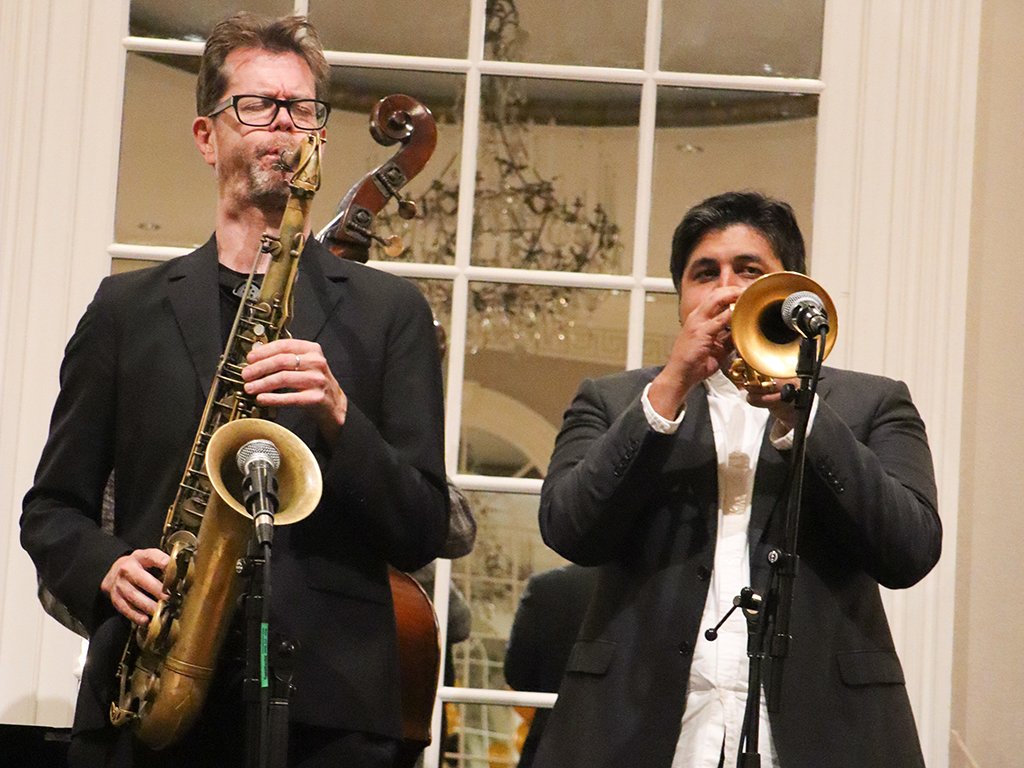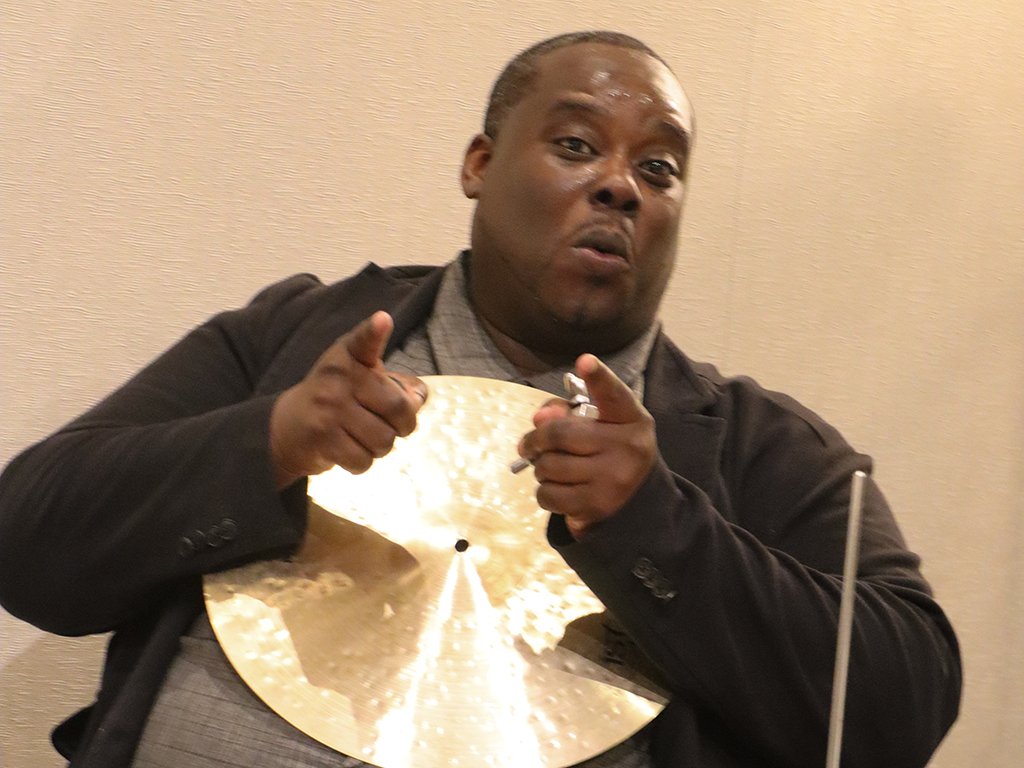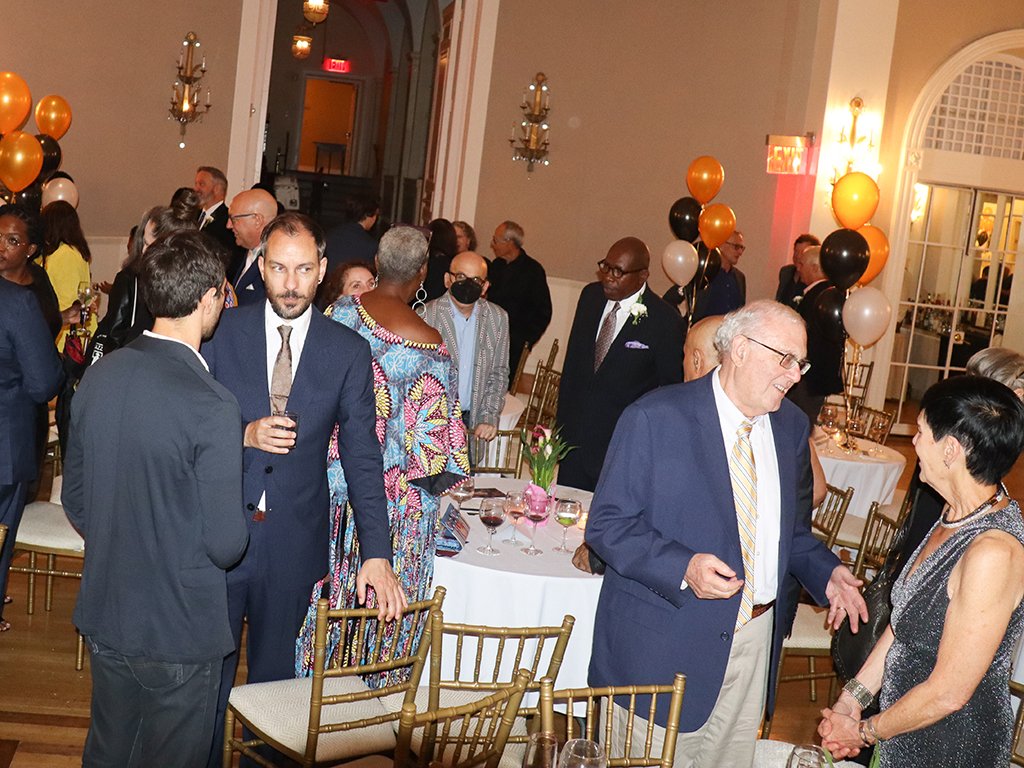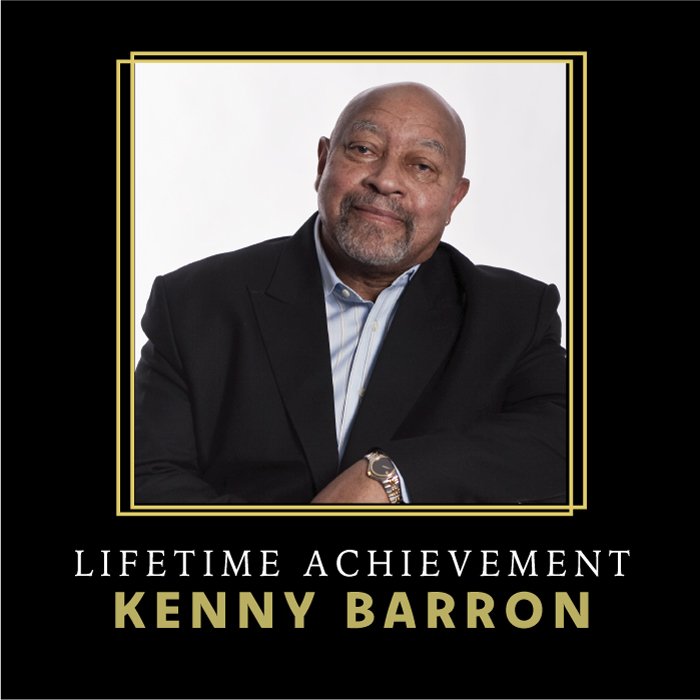The Jazz Gallery’s (BELATED) 25th Anniversary Gala
MAY 16, 2022
In 2022 The Jazz Gallery honored our esteemed Artistic Director, Rio Sakairi with a Founders Award. In her honor, enjoy the tribute video “Rio Is” that was put together to celebrate her immeasurable contribution to the world of jazz.
ABOUT THE HONOREES
KENNY BARRON
Honored by The National Endowment for the Arts as a 2010 Jazz Master, Kenny Barron has an unmatched ability to mesmerize audiences with his elegant playing, sensitive melodies and infectious rhythms. The Los Angeles Times named him “one of the top jazz pianists in the world” and Jazz Weekly calls him “The most lyrical piano player of our time.”
Philadelphia is the birthplace of many great musicians, including one of the undisputed masters of the jazz piano: Kenny Barron. Kenny was born in 1943 and while a teenager, started playing professionally with Mel Melvin’s orchestra. This local band also featured Barron’s brother Bill, the late tenor saxophonist.
While still in high school. Kenny worked with drummer Philly Joe Jones and at age 19, he moved to New York City and freelanced with Roy Haynes, Lee Morgan and James Moody, after the tenor saxophonist heard him play at the Five Spot. Upon Moody’s recommendation Dizzy Gillespie hired Barron in 1962 without even hearing him play a note. It was in Dizzy’s band where Kenny developed an appreciation for Latin and Caribbean rhythms. After five years with Dizzy, Barron played with Freddie Hubbard, Stanley Turrentine, Milt Jackson, and Buddy Rich. The early seventies found Kenny working with Yusef Lateef who Kenny credits as a key influence in his art for improvisation. Encouraged by Lateef, to pursue a college education, Barron balanced touring with studies and earned his B.A. in Music from Empire State College, By 1973, Kenny joined the faculty at Rutgers University as professor of music. He held this tenure until 2000, mentoring many of today’s young talents including David Sanchez, Terence Blanchard and Regina Bell. In 1974 Kenny recorded his first album as a leader for the Muse label, entitled “Sunset To Dawn.” This was to be the first in over 40 recordings (and still counting!) as a leader.
Following stints with Ron Carter in the late seventies Kenny formed a trio with Buster Williams and Ben Riley which also worked alongside of Eddie Lockjaw” Davis, Eddie Harris, Sonny Stitt and Harry “Sweets” Edison. Throughout the 80’s Barron collaborated with the great tenor saxophonist Stan Getz, touring with his quartet and recording several legendary albums including “Anniversary”, “Serenity” and the Grammy nominated “People Time” Also during the 80’s, he co-founded the quartet “Sphere,”
along with Buster Williams, Ben Riley and Charlie Rouse. This band focused on the music of Thelonious Monk and original compositions inspired by him. Sphere recorded several outstanding projects for the Polygram label, among them “Four For All” and “Bird Songs.” After the death of Charlie Rouse, the band took a 15-year hiatus and reunited, replacing Rouse with alto saxophonist Gary Bartz. This reunion made its debut recording for Verve Records in 1998.
Kenny Barron’s own recordings for Verve have earned him nine Grammy nominations beginning in 1992 with “People Time” an outstanding duet with Stan Getz followed by the Brazilian influenced “Sambao and most recently for “Freefall” in 2002. Other Grammy nominations went to “Spirit Song”, “Night and the City” (a duet recording with Charlie Haden) and “Wanton Spirit” a trio recording with Roy Haynes and Haden. It is important to note that these three recordings each received double-Grammy nominations (for album and solo performance.) His CD, “Canta Brasil” (Universal France) linked Barron with Trio de Paz in a fest of original Brazilian jazz, and was named Critics Choice Top Ten CDs of 2003 by JazzIz Magazine. His 2004 release, Images (Universal France) was inspired by a suite originally commissioned by The Wharton Center at Michigan State University and features multi-Grammy nominated vibraphonist Stefon Harris. The long awaited trio sequel featuring Ray Drummond and Ben Riley, The Perfect Set, Live At Bradley’s, Part Two (Universal France/Sunnyside) was released October 2005.
In Spring 2008 Mr. Barron released The Traveler (Universal France), an intoxicating mix of favorite Barron tunes set to lyrics and newly penned compositions. For his first vocal based recording, Barron invited Grady Tate (who sheds his drumsticks for this special appearance), Tony award winner Ann Hampton Calloway and the young phenom Gretchen Parlato, winner of the Thelonious Monk International Competition for Jazz. On “Um Beijo”, Mr. Tate’s warm, leathery voice balanced by Mr. Barron’s poignant touch make for a beautifully textured conversation, underscoring their longtime on stage collaboration. Another Barron original, “Clouds” is a lush vehicle for Ann Hampton Calloway’s romantic pitch-perfect yearnings matched with Barron’s trademark mastery of subtlety. The dramatic “Phantoms” intertwines Parlato’s ephemeral intimacy and syncopatic rhythms in an emotional escapade between Barron’s haunting notes, the West African stylings of guitarist Lionel Loueké, drummer Francisco Mela (who also adds a Cuban flavor to the vocals) and the driving bass of Kiyoshi Kitagawa. The journey continues with the aptly named “Duet” an improvisation with Benin-born Loueké who also joins the trio for a rousing version of Barron’s “Calypso”. A composer who relishes in the moment, Barron’s modern approach is highlighted by alto saxophonist Steve Wilson’s open musings on “Illusion” and “The Traveler” who also brings an urgency to the fun-paced “Speed Trap”.
After a successful musical meeting of the minds with bassist Dave Holland, the two masters decided to collaborate on a duet project to be released on Impulse/Universal records in 2014 followed by a tour.
Barron consistently wins the jazz critics and readers polls, including Downbeat, Jazz Times and Jazziz magazines. The famed Spanish ceramist Lladro honored Mr. Barron with a Lifetime Achievement Award in 2012 and he was awarded an Honorary Doctorate from his alma mater SUNY Empire State in 2013 and from Berklee College of Music in 2011. In 2009 he received the Living Legacy Award from Mid-Atlantic Arts Foundation and was inducted into the American Jazz Hall of Fame and won a MAC Lifetime Achievement Award in 2005. He is a six-time recipient of Best Pianist by the Jazz Journalists Association.
Whether he is playing solo, trio or quintet, Kenny Barron is recognized the world over as a master of performance and composition.
MARIA SCHNEIDER
Maria Schneider’s music has been hailed by critics as “evocative, majestic, magical, heart-stoppingly gorgeous, imaginative, revelatory, riveting, daring, and beyond categorization.” Blurring the lines between genres, her varied commissioners stretch from Jazz at Lincoln Center, to The Saint Paul Chamber Orchestra, to the American Dance Festival, and include collaboration with David Bowie. She is among a small few to receive GRAMMYS in multiple genres, having received the award in jazz and classical, as well as for her work with David Bowie.
With her first recording, Evanescence (1994), Schneider began developing her personal way of writing for her 18-member collective made up of many of the finest musicians in jazz today, tailoring her compositions to the uniquely creative voices of the group. They have performed at festivals and concert halls worldwide, and she herself has received numerous commissions and guest-conducting invites, working with over 90 groups in over 30 countries.
Unique funding of projects has become a hallmark for Schneider through the trend-setting company, ArtistShare. And, in 2004, Concert in the Garden became historic as the first recording to win a GRAMMY with Internet-only sales. Even more significantly, it blazed the "crowd-funding" trail as ArtistShare’s first release, and was eventually inducted into the 2019 National Recording Registry.
Schneider’s many honors also include: 14 GRAMMY-nominations, 7 GRAMMY Awards, numerous Jazz Journalists Association awards, DOWNBEAT and JAZZTIMES Critics and Readers Polls awards, an honorary doctorate from her alma mater, the University of Minnesota, ASCAP’s esteemed Concert Music Award (2014), the nation's highest honor in jazz, “NEA Jazz Master” (2019) (NEA Jazz Master Speech found here), and election into the 2020 American Academy of Arts and Sciences.
A strong voice for music advocacy, Schneider has testified before the US Congressional Subcommittee on Intellectual Property on digital rights, has given commentary on CNN, participated in round-tables for the United States Copyright Office, has been quoted in numerous publications for her views on Spotify, Pandora, YouTube, Google, digital rights, and music piracy, and has written various white papers and articles on the digital economy as related to music and beyond.
Her latest double-album, Data Lords (2020), a Pulitzer Prize Finalist, winner of two GRAMMY Awards, named Jazz Album of the Year by the Jazz Journalists Association and NPR, and winner of France's prestigious Grand Prix de l'Académie du Jazz, has melded her advocacy and art: Nate Chinen of NPR writes: “Now it's finally here, in the form of a magnificent double album, Data Lords. . . it parses into thematic halves, "The Digital World" and, as an antidote, "The Natural World." On the whole and in the details, it amounts to the most daring work of Schneider's career, which sets the bar imposingly high. This is music of extravagant mastery, and it comes imbued with a spirit of risk."
David Hajdu for THE NATION writes, “Beyond the dualism in its format, Data Lords is a work of holistic creativity. The music of outrage and critique in the first album has all the emotion and conceptual integrity that the music of melancholy and reverence does in the second. I can’t conceive of anyone else creating this music, unless Delius has been writing with Bowie on the other side.”
JEFF ‘TAIN’ WATTS
Jeff Watts, the drummer they call "Tain," spent his formative years with Wynton and Branford Marsalis, and his compositional skills now command equal attention.
Jeff initially majored in classical percussion at Pittsburgh's Duquesne University, where he was primarily a timpanist, followed by enrollment at the Berklee School of Music.
Jeff joined the Wynton Marsalis Quartet in 1981 and proceeded to win three Grammy Awards with the ensemble: Black Codes From The Underground, J Mood and Marsalis Standard Time - Vol. 1. Watts left Wynton Marsalis in 1988. After working with George Benson, Harry Connick. Jr. and McCoy Tyner, he joined the Branford Marsalis Quartet in 1989, winning Grammy's for I Heard You Twice the First Time and Contemporary Jazz.
In the film and television industry Jeff has appeared as both a musician on the Tonight Show with Jay Leno and as an actor, Rhythm Jones in Spike Lee’s "Mo Better Blues". Jeff joined Kenny Garrett's band after returning to New York in 1995 and continued to record and tour with Branford Marsalis as well as Danilo Perez, Michael Brecker, Betty Carter, Kenny Kirkland, Courtney Pine, Geri Allen, Alice Coltrane, Greg Osby, McCoy Tyner, Steve Coleman, Gonzalo Rubalcaba, Harry Connick Jr, and Ravi Coltrane.
Jeff has an extensive discography as a side-man, as well as ten albums as a leader:
Citizen Tain (Sony 1999)
Bar Talk (Sony 2002)
MegaWatts (Sunnyside 2003)
Detained, Live at the Blue Note (Half Note 2004)
Folk's Songs (Dark Key Music 2007)
WATTS (Dark Key Music 2009)
Family (Dark Key Music 2011)
Blue, Vol. 1 (Dark Key Music 2015)
Wattify (Dark Key Music 2016)
Blue, Vol. 2 (Dark Key Music 2016)
Travel Band, Detined in Amsterdam (Dark Key Music 2018)
Along with explosive power, blinding speed and mastery of complex rhythms and time signatures, Watts brings a rare sense of elegance, tried-by-fire composure, and a gritty street funk to his music. His artistic ingenuity expresses itself in his incomparable technique, sweltering sense of swing, and an extraordinary ability to imbue his music with majestic grace and elegant repose.
A true jazz innovator, Watts never fails to deliver the percussive magic that has been his trademark since his emergence on the contemporary jazz scene.
RIO SAKAIRI
A leader and advocate in equal measure, Rio Sakairi has worked as Artistic Director for New York’s award-winning Jazz Gallery since 2000. In the past two decades, she’s transformed the humble art space into the city’s incubator for emerging talent. Countless artists who first cut their teeth at the Gallery have gone on to headline the music’s most distinguished festivals, venues and concert halls, from North Sea and Newport Jazz Festivals to the Village Vanguard and Carnegie Hall.
Rio became a champion of the scene’s future heroes by embracing uncertainty as the prelude to transformation. After traveling to New York in 1990 from Tsuchiura, Japan, she earned a dual degree in music and liberal arts from the New School for Social Research. In 2000, she committed to raising $5,000 for an AIDS vaccine bike ride across Alaska, but letter writing and party hosting failed to raise the full amount. Undeterred, Rio began cobbling together a concert fundraiser—contacting Dale Fitzgerald to use his then-newly acquired performance space. The concert raised more than $2,000 and, overnight, Rio’s grit and focus became indispensable to the Gallery’s long-shot success.
Spot-cleaning the bathroom and collecting tickets at the door soon gave way to Rio’s primary responsibility and true passion: programming. In a full-throttle effort to “present quality music with a non-existent budget,” she would rummage through boxes of CD submissions that included yet unknown names Jean-Michel Pilc, Gretchen Parlato, Rudresh Mahanthappa, Lizz Wright, Robert Glasper and MacArthur “Genius” Fellow Vijay Iyer, among others.
Rio’s own individualism reflects what she’s always sought in the Gallery’s programming selections. “When I hear you play, I want to know who you are,” she says. That spirit is the centerpiece of the dynamic, sprawling community she’s fostered within the four walls of The Jazz Gallery. Her commitment to supporting unique, deeply personal expression over technical mastery has positioned the Gallery as the home for the next generation of talent.
But offering emerging artists a space of their own comes with its own setbacks. No stranger to destitution, Rio often found herself struggling to put together a weekend show with less than $20 in her own checking account. But her will to keep all the Gallery’s stakeholders happy persisted—especially the artists themselves. “When I started in 2000, I had a goal,” she says, “that getting a gig at The Gallery would mean something special for young cats—like their first step to being recognized. I think we achieved that goal.”
Under Rio’s leadership, the space has grown to produce more than 300 shows each year. Those performances include essential links to community building that comprise The Jazz Gallery Artist Mentorship Series and The Jazz Gallery Residency Commission Series. She has also spearheaded a multitude of programming initiatives over the years, including the Gallery’s Large Ensemble Commissioning Series, Composers Series, “New Voices” vocal series and the recurring “Trumpet Shall Sound” series featuring one of the Gallery’s co-founders, the late Roy Hargrove. Through the years, Rio’s instincts and hard work have garnered critical attention and praise, including the Jazz Journalist Association Jazz Hero Award, multiple ASCAP/CMA Awards for Adventurous Programming, New York Magazine’s “The Best Jazz Den” award, TimeOut New York’s “#1 Live Music Venue in NYC” award and a nod from The New York Times for “The most imaginatively booked club in the city”. Nate Chinen (WBGO, The New York Times) called Rio, “one of the most influential arts programmers of our times.”
Fulfilling a lifelong commitment to fostering creative expression beyond the Gallery stage, Rio has served on major advisory boards and panels for North Sea Jazz Festival, AIR Serenbe, So What's Next? Jazz Festival, Doris Duke Performance Award, Jerome Foundation and Chamber Music America.
After nearly 20 years serving The Jazz Gallery community, Rio is only beginning to flex her leadership muscles. She looks forward to producing more large-scale performances and programs outside the Gallery—her attitude of accomplishment already in place. “Having a clear picture of where you want to be and what you want to do is really important,” she says. “If your destination is clear and you are not scared of hard work, I think pretty much anything is doable.”


